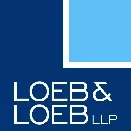The Telephone Consumer Protection Act regulates the use of auto/predictive dialers, which are used to initiate faxes, prerecorded voice messages, and SMS text messages. But a federal court in the Western District of Wisconsin has now expanded the reach of the TCPA beyond auto/predictive dialers, holding in Nelson v. Santander Consumer USA that the federal statute may apply to calls even if an auto/predictive dialer is not used to initiate them.
In Nelson v. Santander, plaintiff Heather Nelson alleged that the defendant, an automobile finance company, called her cellular telephone number (phone service was subscribed to in her husband's name) more than 1,026 times and left 116 prerecorded messages over the course of a year in an attempt to collect a debt on two vehicles the plaintiff had financed. Among other claims, the plaintiff alleged violations of the TCPA. The district court granted the plaintiff's motion for summary judgment on the TCPA claim and awarded $571,000 in statutory damages.
In making these calls, the defendant used the Aspect telephony system, a computer telephone software system that routes inbound calls and places outbound calls. The system has the ability to perform both predictive dialing and preview dialing. In predictive dialing mode, the system times the dialing of numbers using an algorithm to predict when an agent will become available to handle the next outbound call. In preview dialing mode, an agent manually chooses a telephone number to call by clicking the computer screen, and the system then dials the telephone number. The agent presses one button manually on a computer screen, rather than 10 digits on a telephone keypad. The defendant created a list of telephone numbers to be called and used both predictive and preview dialing to call the numbers.
In opposing summary judgment, Santander argued that Nelson failed to show which calls it made to her using predictive dialing and which calls it made to her using preview dialing. The court seemed to acknowledge that preview dialing may be outside the scope of the TCPA but nonetheless concluded that "[r]egardless [of] whether preview dialing falls outside the scope of [the TCPA] ... the question is not how the defendant made a particular call, but whether the system it used had the 'capacity' to make automated calls [citation omitted]. Because it is undisputed that [the] testimony establishes that capacity ... plaintiff is entitled to summary judgment on this claim."
Santander also argued that Nelson had not proven as a matter of law that the company used a random or sequential number generator to call her. Specifically, its system did not generate random or sequential sequences of 10 digits (e.g., (111) 111-1111, (111) 111-1112, etc.). Santander acknowledged that the Federal Communications Commission's expansive interpretation of an "automatic telephone dialing system" includes a predictive dialer that when paired with software "has the capacity to store or produce numbers and dial those numbers at random, in sequential order, or from a database of numbers[,]" but argued that this interpretation should be ignored because it is inconsistent with the language of the TCPA. The court not only disagreed but also found the argument "perilously close" to violating its duty under Federal Rule 11 "to refrain from making a legal contention unless it is warranted by existing law or by a nonfrivolous argument for extending, modifying, or reversing existing law or for establishing new law[.]"
The court also rejected arguments that the plaintiff was not the called party under the TCPA because she was not listed on the cell phone bill and was not the cell phone subscriber. The court held that it was irrelevant whether she or her husband was listed on the phone bill, finding that the TCPA prohibits calls to a cellular phone using an automatic telephone dialing system "regardless of who answers or receives the call."
Finally, the court denied Santander's attempt to file a motion for leave to amend its answer to include a consent defense a month after Nelson filed her motion for summary judgment. Santander argued that it had uncovered significant evidence relevant to a consent defense when it deposed Nelson. The court was not persuaded. It found that Santander had delayed taking Nelson's deposition and that the defense could have been uncovered earlier through Santander's own records. Moreover, the court found that adding the defense would unfairly prejudice the plaintiff.
Key Takeaways
- The decision calls into question prior authority, including the FCC's February 15, 2012, Report and Order, stating that automatic telephone dialing systems are devices that call a set of numbers without human intervention. Human intervention was clearly at play in this case.
- Companies that manually dial cellular numbers, through preview dialing or otherwise, may still be subject to TCPA liability if their calling system has the capacity to make automated calls. The fact that human intervention is involved in the making of actual calls may not provide a defense.
- The statute's reference to "a random or sequential number generator" continues to have little significance in determining whether a call was made using an "automatic telephone dialing system." Companies using automated systems and/or software to dial cellular numbers from a list or database are at risk for TCPA claims.
- Companies should not rely on defenses that the plaintiff is not the subscriber of the telephone number or that consent was obtained from the previous subscriber (though the number was later reassigned). Courts have held that consent to call a given number must come from its current subscriber.
Defendants should assert a consent defense in TCPA actions as early as possible, preferably in their answer, in order to avoid waiver of this defense later on. Consent is a very significant issue and one of the most litigated in TCPA cases, particularly in class actions.
The content of this article is intended to provide a general guide to the subject matter. Specialist advice should be sought about your specific circumstances.

